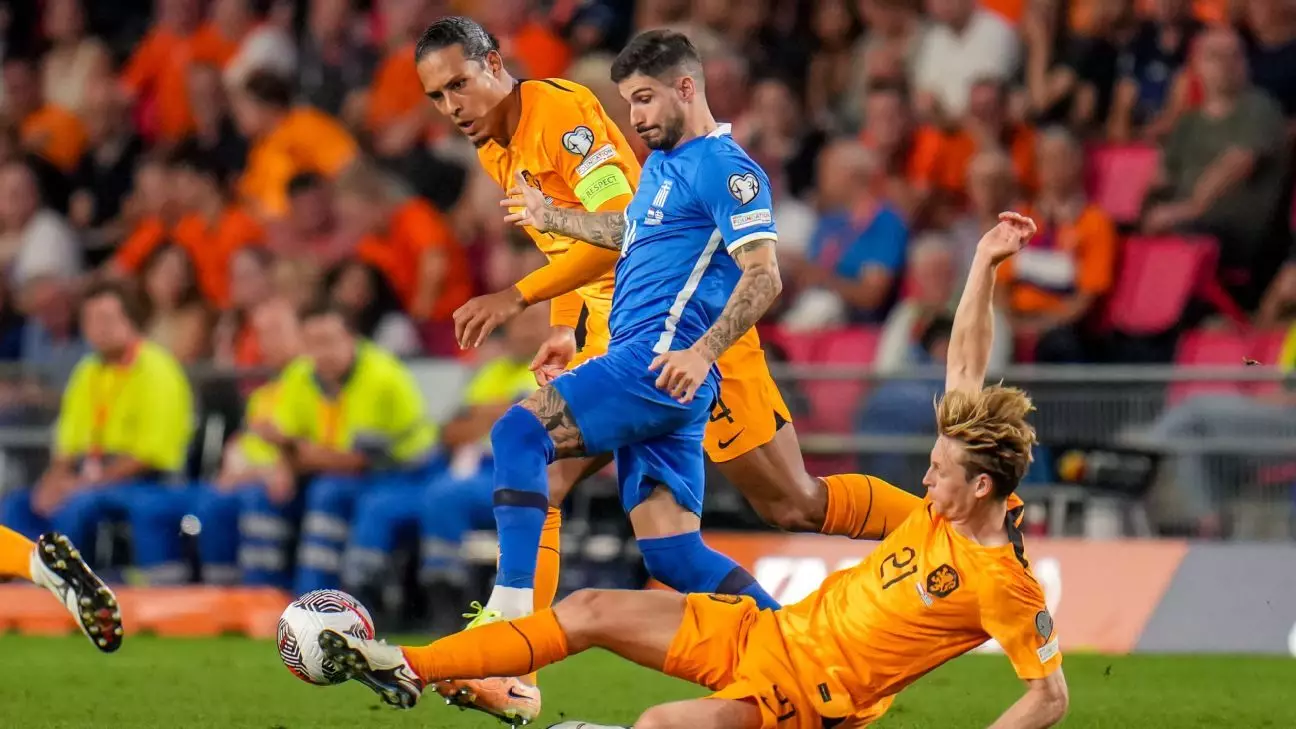The recent decision by Netherlands head coach Ronald Koeman to allow captain Virgil van Dijk and midfielder Frenkie de Jong to withdraw from the national squad raises critical conversations about player management within the international football framework. With the UEFA Nations League clash with Bosnia and Herzegovina looming, Koeman’s strategic call to prioritize the players’ health over an immediate need reflects a significant shift in how national teams might approach player well-being in an intense football calendar.
In a press release, Koeman emphasized that the withdrawal was made on medical grounds, ensuring that the players’ long-term health remains the utmost priority. This decision reveals an awareness of the physical demands placed on players during international breaks, especially following a rigorous club schedule. While a vast majority of coaches would likely relish the opportunity to field their best players, even for a seemingly less crucial match, Koeman has taken a more cautious route. Van Dijk’s withdrawal appears to be precautionary, underscoring the importance of preventing injuries, particularly as major competitions loom in the near future.

Frenkie de Jong’s situation is poignant as well; the Barcelona star’s recent comeback to international play after a debilitating ankle injury adds another layer to the discussion. His acknowledgment of needing more time to regain full fitness highlights the challenges players face not just physically, but psychologically when returning to top form after an injury layoff. This nuanced understanding of player recovery illustrates why Koeman’s decision was not just about this match but foresaw the looming fixtures ahead, including impactful Euro qualifiers.
While the Netherlands already secured their place in the Nations League quarter-finals with a dominant win against Hungary, it puts into perspective the balance between club responsibilities and national aspirations. The fact that both players hold crucial roles in their respective clubs, Liverpool and Barcelona, speaks volumes about the interconnectedness of club and country in modern football. Liverpool’s ambitions are particularly high during the current season, with hopes of competing fiercely on multiple fronts. Their upcoming fixtures against formidable opponents such as Southampton and Real Madrid emphasize the necessity of maintaining a fit and healthy squad.
The decision to release two key players back to their clubs may initially seem like a setback for the Netherlands, but it embodies a broader and much-needed recognition of player welfare in today’s game. As football continues to evolve, the emphasis on physical and mental health will play a crucial role in shaping future strategies—not just for national teams, but for clubs as well. This strategic thinking may also pave the way for other coaches to similarly prioritize player well-being, ensuring that they not only avoid short-term injuries but also safeguard the longevity of players’ careers.

